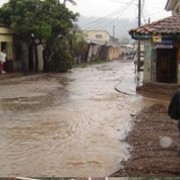You are viewing:
Archived Content
Information released online from June 2012 to September 2017.
You are viewing:
Information released online from June 2012 to September 2017.
Note: Content in this archive site is NOT UPDATED, and external links may not function. External links to other Internet sites should not be construed as an endorsement of the views contained therein.
You are entering the 2012-2017 Archive for the
United States Agency for International Development web site.
If you are looking for current information, visit www.usaid.gov.


Comment
Make a general inquiry or suggest an improvement.